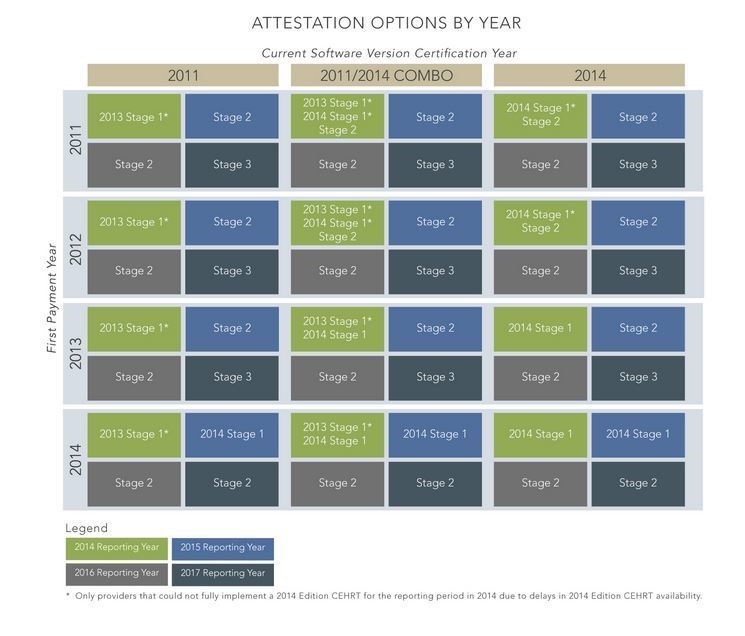
Sweeping changes to the meaningful use (MU) EHR Incentive Program have been proposed. On Tuesday, May 20, 2014, the Center for Medicare and Medicaid Services (CMS) and the Office of the National Coordinator of Health IT (ONC) proposed policy changes that will delay the mandatory use of 2014 Edition Certified EHR technology (CEHRT) to meet MU requirements. Further, the proposed changes also allow those Eligible Professionals (EPs) and Eligible Hospitals (EHs) originally required to use Stage 2 criteria in 2014 to use Stage 1 criteria instead. This means that Stage 2 measures will not be mandatory until 2015. Additionally, the proposal would extend Stage 2 one year through 2016. The intent behind this recommendation is to give participating organizations extra time to properly implement 2014-certified software releases that may have been delayed, as well as build in more time for all parties to prepare for Stage 3.
This response from CMS and the ONC comes on the heels of myriad complaints and critiques about the MU Stage 2 criteria and timeline. This was acknowledged in a statement by CMS Administrator Marilyn Tavenner, who said, “By extending Stage 2, we are being receptive to stakeholder feedback to ensure providers can continue to meet meaningful use and keep momentum moving forward.” Further fueling this decision is the discouraging number of EPs and EHs that have successfully met Stage 2 requirements to date. As of May 1, 2014, only 50 EPs and 4 EHs have attested for Stage 2.
Elana Zana, Attorney at Ogden Murphy Wallace, P.L.L.C., a multispecialty law firm with a concentration in health care, added “CMS’ announcement will provide a much needed reprieve to eligible professionals and hospitals who are struggling with implementing their upgraded CEHRT and getting their providers to meet meaningful use requirements despite significant changes in software and workflow. Allowing a delay in Stage 2 will enable providers to correctly implement the Stage 2 requirements and avoid potential mistakes leading to audit-related refunds, or meaningful use-related payment adjustments.”
As the dust settles from the announcement, EPs and EHs are left to decipher what the proposed rule means for their MU attestation in 2014 and beyond. The different scenarios are listed below:

For EPs and EHs that choose one of the new 2014 attestation options not previously available, certain ambiguities exist. When they attest for their newly chosen option, they must also be able to justify their inability to fully implement 2014 Edition CEHRT for reasons outside of their control. If using a 2014 Edition CEHRT, EPs and EHs will need to prove why they were able to upgrade their software but unable to meet the Stage 2 requirements. What’s unclear is where the burden of proof lies for providers in justifying their inability to meet MU criteria. Given the lack of specification in this area, EPs and EHs must proceed with caution when choosing one of these new options, especially if they have already upgraded to a 2014 Edition CEHRT.
It would seem that those organizations working diligently to achieve Stage 2 objectives and measures now have a little breathing room to assess their 2014 MU plans – except for the fact that a final rule may not be issued until late summer when the last available 2014 EH reporting period is nearly over. For this and other reasons, the announcement should not be used as an excuse to halt all Stage 2 plans.
Even if temporarily delayed, Stage 2 is coming in 2015 when the reporting period is a full year instead of 3 months. Rather than stopping all progress, organizations need to continue moving forward with Stage 2 preparations or risk finding themselves in the same unprepared position. Organizations that seize this opportunity as a chance to properly implement changes needed to support the Stage 2 requirements will not only see MU success in 2015, but, more importantly, will be able to leverage their technology in delivering efficient and effective patient care.
To learn more about ECG’s position on the announcement, see our related press release.

